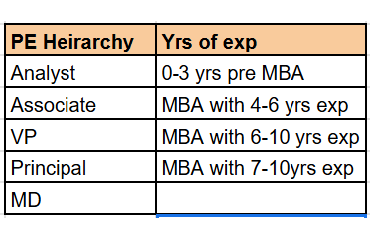
Switching jobs is a significant career move, and how you present your reasons for doing so can make or break your chances of landing your next opportunity. Unfortunately, many candidates fall into the trap of using generic responses like “Looking for professional growth” or “Seeking new challenges” While these reasons are valid, they are overused and fail to set you apart from the competition.
As an experienced recruitment consultant, I have curated 5 ways you can effectively communicate your reasons for a job change without sounding cliché or raising red flags.
How Long Should You Stay at a Job Before Switching?
While there is no strict rule, an ideal stint at a company is around 2-3 years before switching. This time frame allows you to build expertise, contribute meaningfully, and demonstrate commitment while keeping your career progression dynamic. If you switch jobs too frequently (under a year), it may raise concerns about stability. However, if you have valid reasons, always be ready to explain your career moves strategically.
1. Addressing Workplace Culture Without Criticizing
One of the biggest challenges candidates face is navigating toxic workplace environments without badmouthing their employer. Criticizing a previous workplace can make recruiters question your professionalism and discretion. Instead, focus on what you’re looking for rather than what you’re leaving behind.
Better way to frame it: “I value a work culture that fosters collaboration and professional development. While I have learned a lot in my current role, I am looking for an environment that aligns better with my long-term career aspirations and work values.”
This response keeps it professional, avoids negativity, and shifts the focus to your future goals.
2. Aligning Your Goals With the Company’s Vision
If you know the company you are applying to, research its mission, projects, and industry trends to tailor your response accordingly. This helps demonstrate alignment and shows you’ve done your homework.
Example: “I have spent the last three years at XYZ Company, working on [specific projects]. Through this experience, I’ve gained in-depth knowledge of [industry/process]. Now, I’m keen to leverage my expertise in a company that specializes in AI-driven solutions, as I believe AI is the future and aligns perfectly with my skill set and aspirations.”
If you don’t know the company’s specifics, you can use a more general approach:
Example: “I am looking for opportunities that allow me to apply my skills in a dynamic and fast-growing industry, where I can contribute to meaningful projects and continue evolving as a professional.”
3. Turning a Company Shutdown Into a Positive Narrative
Company closures or downsizing can feel like a setback, but you can reframe the situation as a learning experience and a stepping stone to new opportunities.
Better way to frame it: “My previous company underwent restructuring due to market changes, which led to the business shutting down. While this was an unexpected shift, it allowed me to broaden my perspective, adapt quickly, and explore new avenues where I can contribute my skills effectively.”
This response focuses on adaptability and resilience, rather than uncertainty.
4. Reframing Job Insecurity as Proactiveness
Feeling uncertain about job stability is a common concern, but mentioning insecurity outright can make it seem like you’re a risky hire. Instead, frame your decision as a proactive step towards stability and career growth.
Better way to frame it: “The industry I’m currently in is experiencing significant changes, and I want to take a proactive approach by seeking opportunities that offer long-term career growth. I am looking for a role where I can make a lasting impact and continue developing my expertise.”
This shifts the focus from fear to strategic career planning.
5. The Right Way to Respond to Being Laid Off
Layoffs happen, but your response can determine how recruiters perceive you. Want to know the best way to navigate this conversation?
👉 Click here to read our detailed guide on responding to layoffs: 5 Untold Secrets to Acing Your Job Interview and Landing Your Dream Role
Final Thoughts
The way you pitch yourself during a job transition can shape the recruiter’s perception of your professionalism, stability, and career aspirations. Avoid generic statements and instead, frame your reasons in a way that highlights your growth, adaptability, and strategic career planning.
Go ahead and let us know the worst scenario you have encountered in an interview and how you tackled it!
Don’t stress about searching every career page or job site. Stay ahead with the latest opportunities from different sources right here!
Related Articles
You've gone through an education system that probably never taught you anything about professionalism, logical deconstruction, and comfort with ambiguity. You may have tremendous bookish knowledge, but lacking these three attributes is an immediate invisible red flag that will stop you from getting the job or the promotion you always wanted.
Let's throw some light on the top-5 common mistakes that highlight your lack of these attributes, and what you should be doing instead
- Showing up late without informing your interviewer/coordinator - there are genuine reasons one could be running late, but that needs to be duly communicated ahead of the planned interaction. Inform every marked on an invite, drop a text or give a call, but keep your stakeholders informed. Their time is as much valuable as yours.
- Turning up unprepared for the interview - if you are turning up unprepared, why is it that you are turning up at all? why waste your and interviewer's time? You are better off declining the opportunity, instead of ruining your reputation unnecessarily. You must invest 1 hour to read about the company, the opportunity, some information in the public domain and so on, if you have chosen to show up for an interview.
- Going silent instead of communicating effectively with your stakeholders - it might come as an insight but everyone knows you would evaluate multiple opportunities before chosing one, everyone knows that your decision might be influenced by your loved ones, and everyone is okay with your being unsure, but nobody likes to be left wondering about what might be happening. So, good, bad or ugly, communicate, communicate and communicate! You'll build more relationships that you ever thought, and you never know, one or more of these relationships may turn gold in the times to come.
- Rambling stuff that does not make sense - let us fill you in on another secret, nobody - not even the most successful individuals can know everything about everything in the world. So, when presented with topics/questions you have no clue about, you got to either draw parallels from what you have expertise on, rationally break down the information you are presented with to come up with simple yet logical answers, or admit you do not know anything about this but can talk about something relevant to the opportunity being discussed in detail.
- Demanding a bomb without a concrete rationale - the whole world is underpaid, friends! who doesn't want more, but that's not how it works. Your next compensation cannot ignore your current and/or previous compensations. If you chose to take a sabbatical, took an opportunity by taking a haircut, or become an entrepreneur that eventually did not work out, you have to make peace with your decision. Nobody else had a say in that! You can definitely demonstrate additional skills/knowledge that you acquired during this period (that surely has a value), but that value isn't the only figure on which your next compensation will be decided on. So, learn about the market standards and try to limit your ask within the broadly acceptable range.
Let’s be honest — job hunting today feels like swiping right on a dating app where no one ever replies. Employers can’t find the right talent, job seekers chase ghost listings, and somewhere between “We’ll get back to you” and “Position closed,” everyone loses their sanity.
Enter Aplushub — the career saver we didn’t know we needed.
Why Aplushub Exists
Born from the chaos of the modern job market, Aplushub was built on one bold idea — quality over quantity. It’s not just another job portal flooding you with random roles. It’s a curated ecosystem that blends AI precision with human insight to filter out the clutter and keep only what truly matters: authentic, relevant, and verified opportunities.
What It’s Solving
Aplushub is tackling the biggest pain in job search — noise. Fake jobs, expired links, spam recruiters, and endless scrolling are replaced by clean, credible listings. The platform categorizes openings into Free Jobs (posted directly by employers) and Premium Jobs (handpicked by Aplushub’s research team from trusted sources and networks). So, no more digital wild goose chases — only jobs worth your time.
Remote Jobs? Absolutely.
Whether you’re working from your couch in Chennai or a café in Manali, Aplushub’s got you covered. The platform features a dedicated Remote Jobs section — tailored for professionals who value flexibility. It connects you with employers who believe talent shouldn’t be tied to geography.
Why It’s a Win-Win
For job seekers, Aplushub is your career compass — one dashboard, hundreds of genuine opportunities, and no shady “DM for job” drama.
For employers, it’s a hidden gem. Posting is free, candidate access is simple, and you get applicants who are genuinely interested — not bots in disguise.
Bonus Perk: The *OpenBook* Advantage
Here’s where Aplushub really flips the script — OpenBook, its transparency-first feature. It gives job seekers a peek into real hiring insights, company trends, and recruiter updates, turning job search into a smarter, more informed experience. No more guessing what employers want; OpenBook hands you the inside scoop to make data-backed career moves.
The Price Tag (Spoiler: It’s Almost Free)
Aplushub keeps things real and affordable. You can explore its free tier, test-drive premium access with ₹50/Month, or go all in with ₹499 for a full year— basically less than your monthly coffee budget to land your next big opportunity.
So whether you’re hiring, hunting, or just tired of the chaos — Aplushub is here to bring sanity (and a smile) back to your career journey.
👉 Visit AplusHub.com — where jobs finally make sense.
Private Equity (PE) is one of the most coveted industries in finance. One of the highest paying industries, Private Equity (PE) attracts absolute creme-de-la-creme of MBA graduates, management consultants, and investment bankers. Also highly competitive, PE funds hire only a handful of investment professionals across levels in a year.
A+ research team has spoken to multiple PE professionals across domestic and global PE funds in India. In the table below, we have compiled average base compensation, variable (bonus) and carry components at blue chip global PE funds in India.
| Role | Yrs of exp | Large Global PE Funds (base salary) | Bonus (as a % of base) | Carry | |
| Analyst | 0-3 yrs pre MBA | $60K-$80K | 60-100% |
Notional Carry or LTI or Certain bonus is paid in the form of carry distribution in case of multi-billion dollar funds*
|
|
| Associate | MBA with 4-6 yrs exp | $100K-$150K | 80-100% | ||
| VP | MBA with 6-10 yrs exp | $200K- $250K | 90-120% |
Estimated 0.5%-2% of the carry pool for a multi billion dollar fund*
|
|
| Principal | MBA with 7-10yrs exp | $300K-$400K | 90-120% | ||
| MD | $500K+ | 100-150% | |||
| Notes: |
These figures are estimates of salaries at top global PE funds like Bain, Carlyle, TPG, Warburg Pincus, General Atlantic and the likes
|
||||
|
Buyout focused funds have 30-50% higher base salaires and respective bonuses
|
|||||
|
*These are estimates from the information gathered through our network; might change/vary with more data
|
|||||




